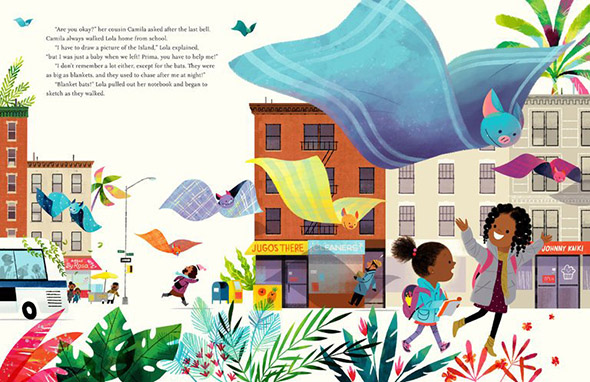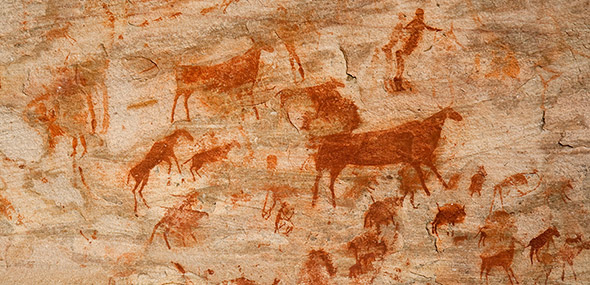Said and Done | In the Media | March 2018

A section of Said and Done
Full March 2018 edition
COMPARATIVE MEDIA STUDIES
Why the Parkland shooting is different | Sasha Costanza-Chock
Sasha Costanza-Chock, associate professor of civic media, says teenage activists deserve credit for keeping Parkland in the news. “They've given hundreds of interviews to print and TV journalists, so within a couple days they learned how to do that, and how do you use talking points with a reporter.”
Story at Washington Post
ECONOMICS
What a more equitable US trade policy could look like
“International trade creates diffuse benefits and concentrated costs,” says MIT economist David Autor. “China’s rapid rise, while enormously positive for world welfare, has created identifiable losers in trade-impacted industries and the labor markets in which they are located.”
Story at the New York Times
SCIENCE, TECHNOLOGY, AND SOCIETY
Can an AI-powered bot help parents raise better humans? | Sherry Turkle
Turkle, director of the MIT Initiative on Technology and Self, told the New York Times that “intimate machines” like Aristotle could change the way people think about personhood. “We can't put children in this position of pretend empathy and then expect that children will know what empathy is,” she said. This was not an anti-technology stance, she said, but simply an argument against technology that pretended to do things it could not.
Story at Quartz
American Panda, set on MIT campus, explores cultural stereotypes
In a new novel by Gloria Chao ’08, the protagonist struggles between Taiwanese and American cultural values.
Story in MIT Slice by Nancy DuVergne Smith
LINGUISTICS
Ancient cave drawings and early human language linked | Shigeru Miyagawa
Co-authored by Miyagawa and PhD candidate Cora Lesure, a new paper suggests that cave art was made in acoustic "hot spots" because early humans were converting acoustic sounds into drawings.
Story at National Geographic
SECURITY STUDIES PROGRAM
Beijing watches and waits while Trump talks up his meeting with Kim Jong Un
"The US will want China to lean on the DPRK; the DPRK will want China to make its case to the Americans; and both will want China to be part of whatever political settlement is achieved, if one is achieved," says Jim Walsh, Senior Research Associate in the Security Studies Program.
Story at CNBC | Jim Walsh's website
More analysis from Jim Walsh
North Korea talks: Where will Donald Trump meet Kim Jong-un? | The Guardian
Why North Korea Is Willing to Talk About Nuclear Disarmament | Bloomberg
GLOBAL STUDIES + MUSIC
Mouse on Mars at MIT: An acadmic symposium becomes a dance party
Mouse on Mars, the brainy, playful, long-running, relentlessly inventive electronic-music duo from Berlin, debuted its latest album at an unusual venue: the MIT conference called “Dissolve Inequality: Music@MIT." Led by Ian Condry, title, the conference asked: How can a new era of music reduce gender, racial, and economic inequalities?
Story at the New York Times | About Dissolve Inequality: Music | Ian Condry's webpage
WRITING
Author Junot Díaz on his first children's book, Islandborn
Díaz, Pulitzer Prize winner and Rudge and Nancy Allen Professor of Writing at MIT, talks to “CBS The Morning” about Islandborn, his debut children's book that was two decades in the making.
Video at CBS |
Díaz says that the book would have been written without a plea from his then very young goddaughter. “She wanted a story, man,” he said. “I had to come up with the goods.”
Preview at the New York Times

An illustration by Leo Espinosa from Junot Díaz’s “Islandborn,” a picture book by Junot Diaz.
CENTER FOR INTERNATIONAL STUDIES
South Korea’s president is bringing “Little Rocket Man” and “Dotard” to the table
MIT political scientist Vipin Narang says that South Korean President Moon had been “orchestrating this whole thing with very little from either the DPRK or the US.”
Story at Quartz
ECONOMICS
Some things are true even if Trump believes them | David Autor
“International trade creates diffuse benefits and concentrated costs,” says MIT economist David Autor. “China’s rapid rise, while enormously positive for world welfare, has created identifiable losers in trade-impacted industries and the labor markets in which they are located.”
Story at the New York Times
SECURITY STUDIES PROGRAM
Trump’s new pivot on foreign policy: Bring back the warmongers | Barry Posen
“It does not look to me as if this is a ‘eureka’ moment for the ‘Restraint’ strategy,” says Barry Posen, Director of the MIT Security Studies Program. “Instead, this looks a bit like hegemony without liberalism.”
Story at Salon
SCIENCE, TECHNOLOGY, AND SOCIETY
Dubai decrees itself the A.I. city-state of the future
Innovation has historically flourished in open, democratic societies not least because they have legal systems that are not subject to political whims, notes Loren Graham, Professor Emeritus of the History of Science.
Story at Time Magazine
COMPARATIVE MEDIA STUDIES
Why news about the Parkland shooting is being sustained
Sasha Costanza-Chock, associate professor of civic media, says the teenage activists deserve credit for keeping Parkland in the news. “They've given hundreds of interviews to print and TV journalists, so within a couple days they learned how to do that, and how to use talking points with a reporter.”
Story at The Washington Post
LABOR ECONOMICS
New wage gap despite tight job market | David Autor
In the 19th century, it took six decades after the Luddites for the wages of textile workers to recover after the advent of weaving machines. We are in the midst of another such gap now, according to David Autor, a pioneering labor economist at MIT. What's happening now: Machines are creating more wealth, but workers are not getting their usual cut of the pie, Autor told Axios.
Story at Axios
WRITING + PHYSICS
Stephen Hawking was the ultimate image of mind over matter | Tribute by Alan Lightman
"The passing of Stephen Hawking gives us the opportunity to celebrate the best in ourselves, to reaffirm the power of the human mind and the majesty of our desire to know and to understand this strange universe we find ourselves in. With so much brutish and divisive behavior in the world at the moment, it is good to remind ourselves of who we are."
Tribute in The Washington Post
A section of Said and Done
Full March 2018 edition
